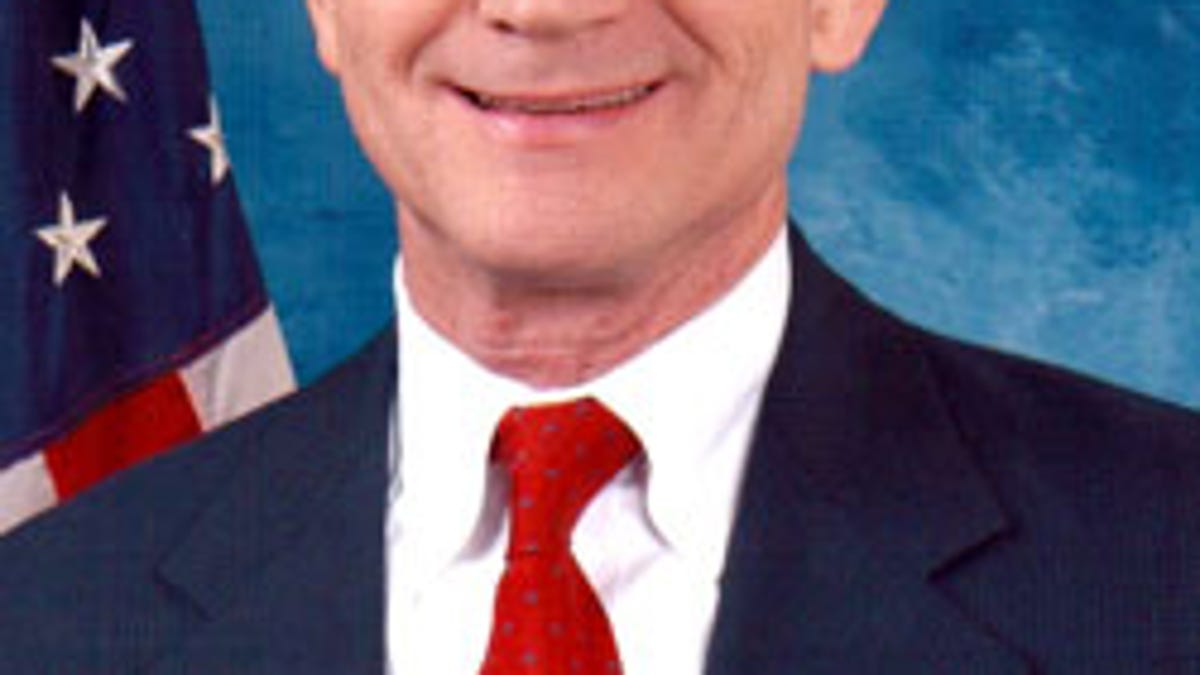SOPA halted in House
Rep. Lamar Smith says the House Judiciary Committee will not move forward with the Stop Online Piracy Act until there is wider agreement on a solution.

The Stop Online Piracy Act has officially been put on hold.
U.S. Rep. Lamar Smith (R-Texas) announced today that the House Judiciary Committee, which he heads, "will postpone consideration of the legislation until there is wider agreement on a solution." Smith added that he has taken critics' concerns "seriously."
"It is clear that we need to revisit the approach on how best to address the problem of foreign thieves that steal and sell American inventions and products," Smith said in today's statement.
The statement from the House Judiciary Committee does not mention SOPA by name, but a committee representative contacted by phone confirmed that it does indeed refer to the Stop Online Piracy Act.
The decision to wave the white flag on SOPA comes just hours after U.S. Senate leaders announced they had postponed their vote on the Protect IP Act (PIPA) scheduled for Tuesday. Senate Majority Leader Harry Reid (D-Nev.) said that the recent criticism on both SOPA and PIPA forced his hand, but Reid did acknowledge that he hopes to reach an agreement with the legislation's foes "in the coming weeks."
That might be a tall order. Earlier this week, several prominent Web sites, including Wikipedia and Google, staged a protest of both SOPA and PIPA. The bills, supported by Hollywood and the recording industry, are designed to stop online piracy, but critics say they go too far. In its original form, SOPA would have allowed the U.S. government to order Internet service providers to all but eliminate Web sites that allegedly contain pirated material.
Over the last several weeks, the number of people and groups opposing the bill soared, making it politically untenable for Washington lawmakers to support the measure, especially in an election year. At last night's Republican presidential debate, all four candidates--Rep. Ron Paul (R-Texas), former House Speaker Newt Gingrich, former Sen. Rick Santorum, and former Massachusetts Gov. Mitt Romney--distanced themselves from the bills, saying that SOPA and PIPA go too far.
Still, Smith appears unwilling to stop pressing for some kind of legislation to curb online piracy. He reiterated in today's statement that the "theft of America's intellectual property costs the U.S. economy more than $100 billion annually and results in the loss of thousands of American jobs."
"The Committee will continue work with both copyright owners and Internet companies to develop proposals that combat online piracy and protect America's intellectual property," Smith said. "We welcome input from all organizations and individuals who have an honest difference of opinion about how best to address this widespread problem. The Committee remains committed to finding a solution to the problem of online piracy that protects American intellectual property and innovation."
Smith is not alone is looking for a solution. Chris Dodd, a former senator and current CEO of the Motion Picture Association of America, said today that the fight isn't over and that more work needs to be done to stop piracy.
"With today's announcement, we hope the dynamics of the conversation can change and become a sincere discussion about how best to protect the millions of American jobs affected by the theft of American intellectual property," Dodd said in a statement. "The threat posed by these criminal operations has been widely acknowledged by even the most ardent critics. It is incumbent that they now sincerely work with all of us to achieve a meaningful solution to this critically important goal."
It's unclear what the future holds for SOPA and PIPA. Today's postponements are by no means outright dismissals of the bills, and it appears both Reid and Smith are committed to pushing some kind of anti-piracy legislation through Congress.
For now, however, the Web can sleep soundly, knowing that Washington has decided to retreat and to fight another day.
Updated at 8:19 a.m. PT to include more details.

